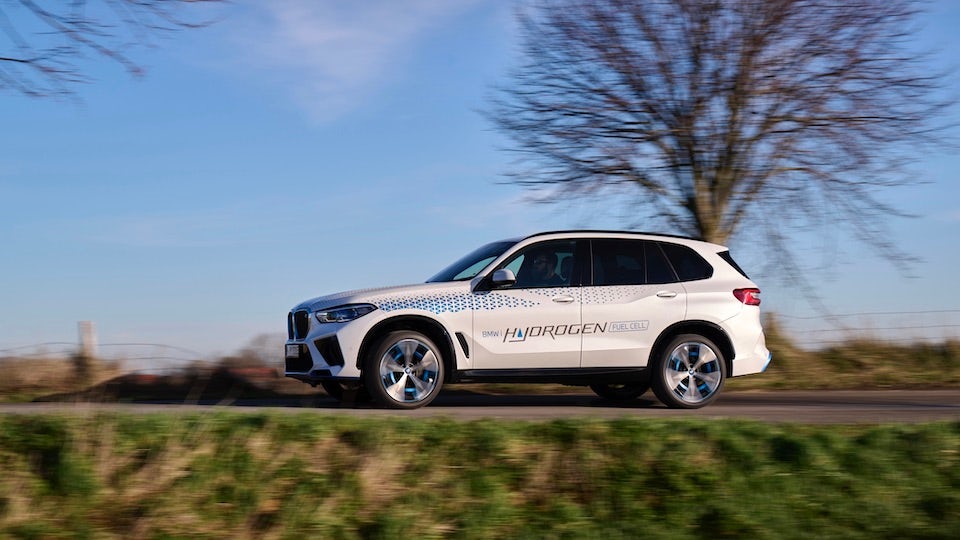BMW iX5 debuts in UK: Hydrogen-powered SUV tests future tech
June 29, 2023 by Jack Healy

Car changing is a big deal
With a fleet of almost 100 vehicles, BMW is taking its fuel cell vehicle development to the next stage. Read on to find out more.
- BMW pushing forward with FCEV development
- Uses hydrogen to power electric motors
- Components borrowed from Toyota
- Range of over 300 miles
- Not confirmed for release
BMW is making sure it’s covering other bases for the future of motoring by stepping up its hydrogen fuel cell technology development.
With a fleet of iX5s – modified versions of the current X5 SUV – the German brand is looking to test this alternative to full electric power on a more widespread basis.
Testing will include running some vehicles in the UK, with BMW gathering data on the viability of hydrogen fuel cell technology. It has used the fuel cell system from Toyota, which introduced its first Mirai hydrogen-powered model back in 2010. A second generation of the model was released in 2020.

The system uses compressed hydrogen gas that is passed into a ‘fuel cell’, where the gas molecules are split into protons and electrons. The protons become water – the only emission from a hydrogen-powered car – while the electrons are passed into a battery pack that then powers the electric motor that drives the wheels. Those motors can also recoup energy from coasting and braking, like a normal EV.
In the UK, the technology isn’t widely used, and there are only 15 fuelling stations across the country. But in places like Japan and mainland Europe, they are more common – but obviously not at the level of petrol or EV charging stations.
What makes the idea of fuel cell electric vehicles (FCEVs) so interesting is that they take only slightly longer to fill the pressurised tanks with hydrogen than petrol- or diesel-powered cars, so refuelling is more like the conventional way drivers are used to rather than lengthier EV charging. They also release no harmful tailpipe emissions at all.

In the iX5, you get capacity for 6kg of compressed hydrogen gas which charges a battery with a 313-mile range on the official test cycle. That’s comparable to many EVs currently on sale, and with refill times taking under five minutes, the convenience of hydrogen could be a strong selling point if the technology ever reaches production.
While using components from internal combustion engined cars, BMW has also developed FCEV-specific parts, such as a high voltage coolant pump and high-speed compressor with a turbine that feeds the hydrogen into the tank. Along with Toyota’s fuel cell components, BMW uses its own eDrive electric motors, which combined develop 401hp across both systems.

The iX5s that are being used as a test-bed for the technology can go from 0-60mph in under six seconds and reach a top speed of 112mph.
Get the latest deals on new BMWs, while you can also find offers on used models here. If you need help selling your car, you can do that with carwow too.